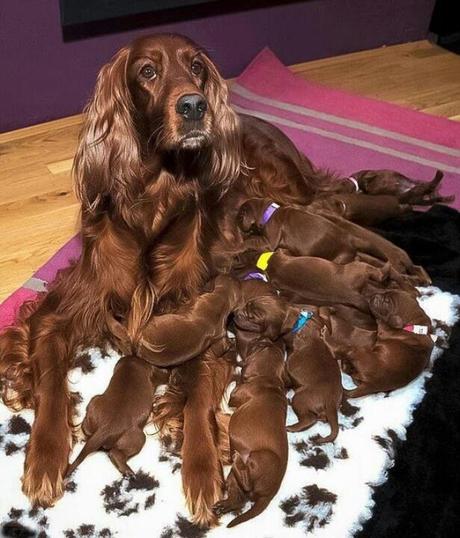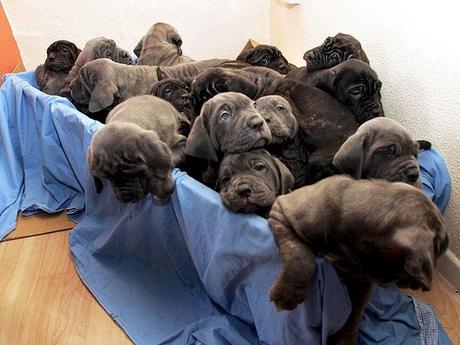
Puppies are delightful and will grow to fit your family but they require intensive care and training. It’s best to acquire a puppy from the person who bred him if possible, and meet the pup before you take ownership.
(Check out Choosing the Right Kind of Dog for Children with Allergies)
Where to Get a Puppy
If you prefer to select a pure-bred puppy ask your country’s Kennel Club, breed societies, or animal welfare charities for advice on good breeders in your area. If you would be happy with a cross-bred dog, you can often adopt puppies from rescue centers or even from people you might know.
It’s always best to buy from the person who bred the puppy. It’s unwise to buy from advertisements, as you often can’t tell where a puppy comes from. Also avoid pet shops, which can be traumatic places for pups, and which may get their puppies from disreputable “puppy farms.” Never buy a pup without meeting him first and never buy on impulse.

Visiting a Breeder
Good breeders provide a “family” environment to give their pups the best start in life. Check that the pups live with their mother and avoid any kennels where pups are shown on their own.
Find a breeder who will allow you to spend some time with the litter. Check that the puppies are being raised indoors and with plenty of human contact. Watch any signs that they may not be used to being in a house – for instance, being startled by normal domestic noises, such as a phone ringing.
Look at the mother (and father if he’s present). Are they friendly? Have they been screened for any inherited diseases associated with that breed? Check that the kennels look and smell clean. Is the pups’ sleeping are separate from the toilet area?
The breeder may ask how much experience you have with that breed or with dogs in general, or how you intend to care for the pup. You should also have the chance to ask questions. Will the puppy be wormed and vaccinated? Will the breeder give you advice for the first few weeks after you have bought your pup, or let you return it if things don’t work out? Don’t forget to collect all necessary information from the breeder.

Litter of puppies
Owner’s Checklist from Breeder
- Print-out of pedigree
- Breed registration papers
- Certificate of inoculations
- Worming history documentation
- Printed declaration that the pup is healthy and has a good body structure, and that these factors will be verified by your own vet
- A diet sheet giving food and feeding regime with a sample of the puppy’s current food
Selecting Your Puppy
A puppy should enjoy meeting your and being handled. A pup that snaps at you could have a dominant personality and be hard to train, while one that hides from you may need a lot of patience to ensure it doesn’t grow into a nervous adult. Never pick a puppy because you feel sorry for it.
Look out for any sings of ill health, such as runny eyes or nose, diarrhea, thin or pot-bellied body, dull fur, or scabby patches.
If you have children, visit the puppies yourself first, then take the children once you have made an initial choice.
Key-points in Choosing a Puppy
- Young pups should live with their mother and siblings. The breeder should let you meet the mother and see the whole litter together.
- Never buy a pup without meeting him first and never buy on impulse. And never because you feel sorry for him.
- Choosing a puppy is an exciting, emotional experience for children. Select a likely candidate before your children meet the pup to ensure a happy outcome.
- Rescue centers occasionally offer puppies who have been abandoned, orphaned, or whose owner has had to give them up. Since the pups have had a difficult start in life they may need special care.

